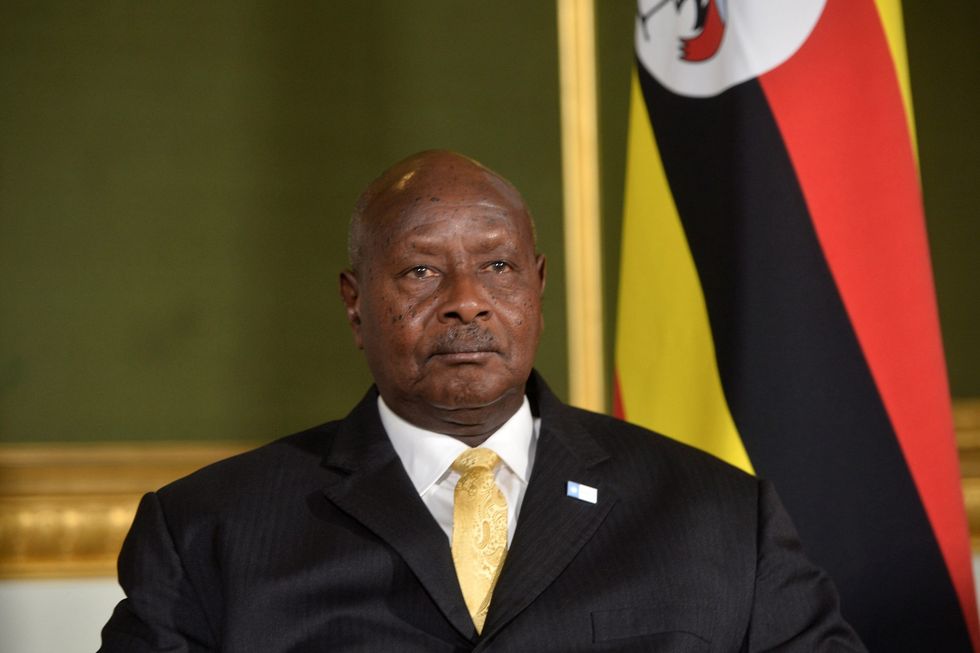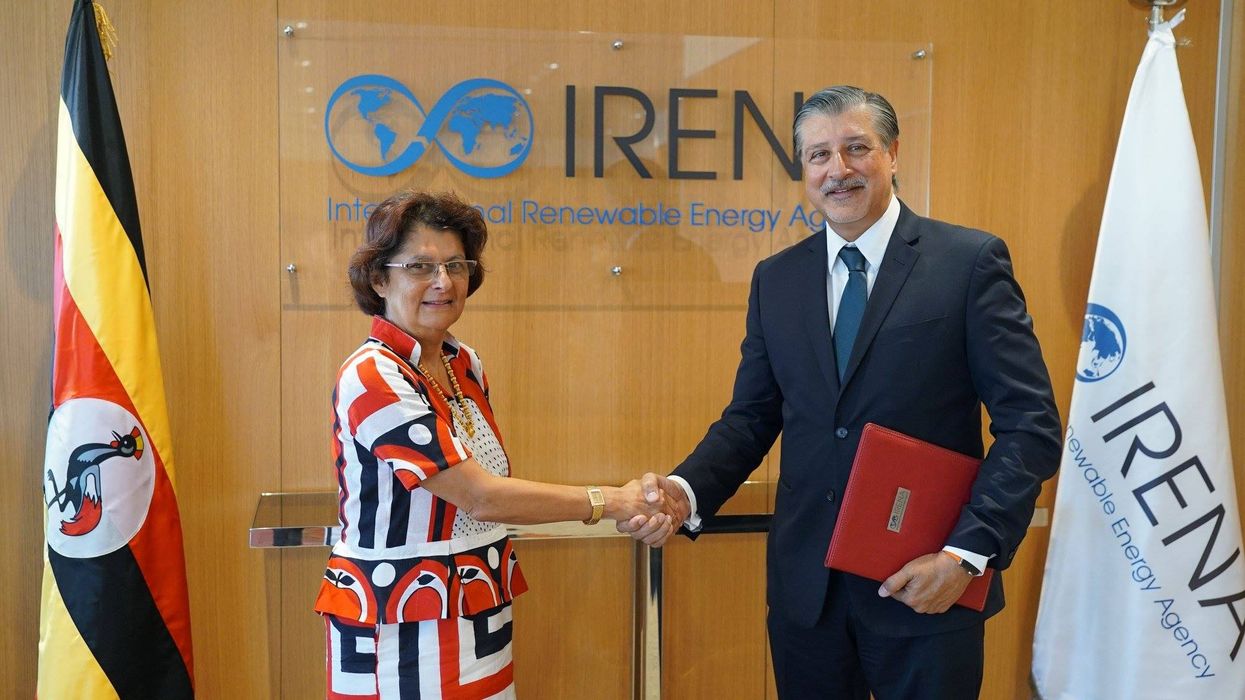NIMISHA MADHVANI, whose appointment as Uganda’s high commissioner in London was reported in Eastern Eye last December, took up her post last week.
She does so at an important phase in Uganda-UK relations.
First, 2022 marks the 50th anniversary of Idi Amin’s expulsion of 90,000 Uganda Asians, nearly 30,000 of whom arrived as refugees in the UK, but have since built successful and prosperous lives in this country.
Second, president Yoweri Museveni, who has been trying to encourage Asians to return or otherwise get involved in his country’s economic development, will be in London for a trade and business summit from September 10-13.
Museveni has sent a video message of reconciliation to Ugandan Asians in Britain, seeking closure on the events of 50 years ago and right the wrongs of history. He said, “Our country Uganda has a special relationship with the UK and the Commonwealth in dealing with issues of economy, culture, history, and the fight to end poverty.”
And added, “The coming month of August and September 2022 are very special in our relationship. First, we have the Uganda-UK convention, which many entrepreneurs from Uganda wish to attend.
“And second, Uganda commemorates 50 years of struggle, recovery and ending human rights abuses that Idi Amin, in August of 1972, visited on the Asian community, the very community that had been a seed for Uganda’s business (and) independence in 1962.”
The president added: “Many of these Asians eventually ended up in the UK. However, in the last 30 years, our economy has grown at an average rate of 6 percentage points per annum. We have returned all Asian properties that Amin confiscated. And the children of the people he expelled are busy helping rebuild their country today.”
Museveni also said: “As we look back on the events of August 1972, we are reminded of the need to be careful with treatment of minorities. This is the reason our government takes an inclusive stand on all aspects of life, faith, ethnicity, and other aspects of national life.”
He emphasised: “The best way to close this chapter is raise the overall productivity of the Ugandan citizens, so as to raise their social classes and end poverty.”

Museveni’s decision to appoint Nimisha as the first Asian in such a senior job has been welcomed by key figures, including the Tory peer, Lord Dolar Popat, the British prime minister’s trade envoy to Uganda as well as to Rwanda and the Democratic Republic of the Congo. He told Eastern Eye: “I hope there will soon be direct flights between the UK and Uganda.”
Nimisha, who belongs to Uganda’s premier Asian business family, is one of her country’s most experienced diplomats.
She was born in Kakira in eastern Uganda in 1959 to Meena and Jayant Madhvani, both Ugandan citizens of Indian descent. Jayant was the firstborn of the five sons of Mulji Prabhudas Madhvani (1894–1958), the industrialist and entrepreneur who founded the Madhvani group of companies in 1930.
Nimisha grew up at the family estate in Kakira, about an hour and a half’s drive east of the capital, Kampala. When Amin expelled Ugandan Asians in 1972, she sought refuge in Britain with her family as a 13-year-old teenager. When the National Resistance Movement captured power in the 1980s, the Madhvani family returned to Uganda and repossessed their assets. Nimisha’s mother returned to Kampala just a month after Amin fled the country in 1979.
In 1992, Museveni sought to restore the war-torn economy and urged the Indians to return to Uganda and become part of the country’s economic life. Laws were changed to allow the restoration of confiscated property to their Indian owners. Though most Ugandan Asians had made a new life for themselves after leaving Uganda, a few Indians did return to take over their property and factories.
Nimisha joined her country’s diplomatic service in 1990. She was posted to Washington as first secretary at the Ugandan embassy. In 2007, Indians were intrigued when she was transferred to New Delhi as Uganda’s deputy high commissioner and promoted to high commissioner a year later. She was concurrently accredited to Bangladesh, Bhutan, Indonesia, Malaysia, Myanmar, Singapore, Sri Lanka and Thailand.
She told one Indian newspaper about Uganda: “To many of us, though we lived in the UK or other places around the world, Uganda still held a place in our hearts. It was always home.”
In 2008, Museveni attended the Afro-Indian summit in New Delhi where he “made a strong pitch for Indian investment in Uganda. Relating an anecdote to illustrate the kind of opportunities awaiting in Uganda, he said Ugandans had a long history as cattle breeders and produced good quality beef and milk, but most of the milk in Uganda was thrown away. An Indian-Ugandan joint venture, Sameer Dairy, had set up milk collection and cooling centres in several parts of the country to collect and process milk. Now Uganda was poised to become a milk exporter.”
In 2014, Nimisha was transferred to the Ugandan embassy in Paris as ambassador, serving in that capacity until 2017.
While in Paris, she also served as her country’s ambassador to Portugal, Spain, OECD and the UNESCO.
In January 2017, she was appointed as Uganda’s ambassador to Abu Dhabi and the International Renewable Energy Agency (IRENA).
In November 2018, she was posted to Uganda’s embassy in Copenhagen, and simultaneously accredited to Finland, Iceland, Norway and Sweden.
Nimisha’s priority will be to boost Uganda’s exports to the UK and encourage British investment in her country.
Museveni has appealed to the UK to buy more of Uganda’s agricultural produce.
In his message he said he was appealing to the British “to allow in larger quantities of Ugandan fruits and other vegetables, flowers, beef, fish, dairy products, grains, coffee (and) honey”.
He argued: “Trade is a tool for positive change, stability, and the welfare of all humanity. “We are working hard to ensure all our food and trade standards meet the international criteria. And we should soon support the exporters to the UK with a credit fund to allow them to fulfill the orders you give them.
“We’re also working with the UK Export Finance to improve our export infrastructure at our border entry points and make it easier to trade.”
He had an explanation for the quality of Uganda’s produce. “These foods are very good foods and they are very unique because of our altitude.”
He quipped: “I don’t know why our bananas are the best in the world – I have no idea. It must be because of the soil and the altitude.”
He also spoke about “millet flour mixed with the cassava flour. They are the richest in life because they have protein, carbohydrate and iron all in one. That’s why some of the African tribes are very strong for they live on this food. They’re very delicious, very, very nice, but also very nutritive.”
He believed enhanced trade would help to “end poverty and bring prosperity and stability to our region”.




